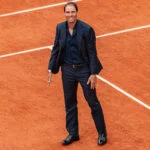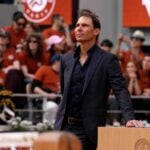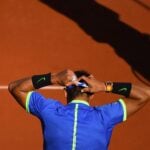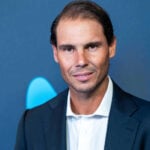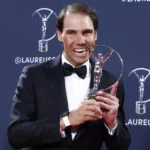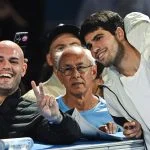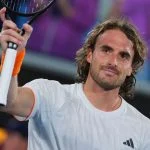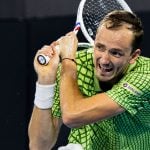Nadal’s Paris reflection : “The adrenaline of sports is impossible to find again, but I won’t be less happy”
On the evening of his emotional tribute at Court Philippe-Chatrier, Rafael Nadal spent an hour with international media, sharing a rare and honest perspective on his past as a champion — and his future as a devoted father and grounded man
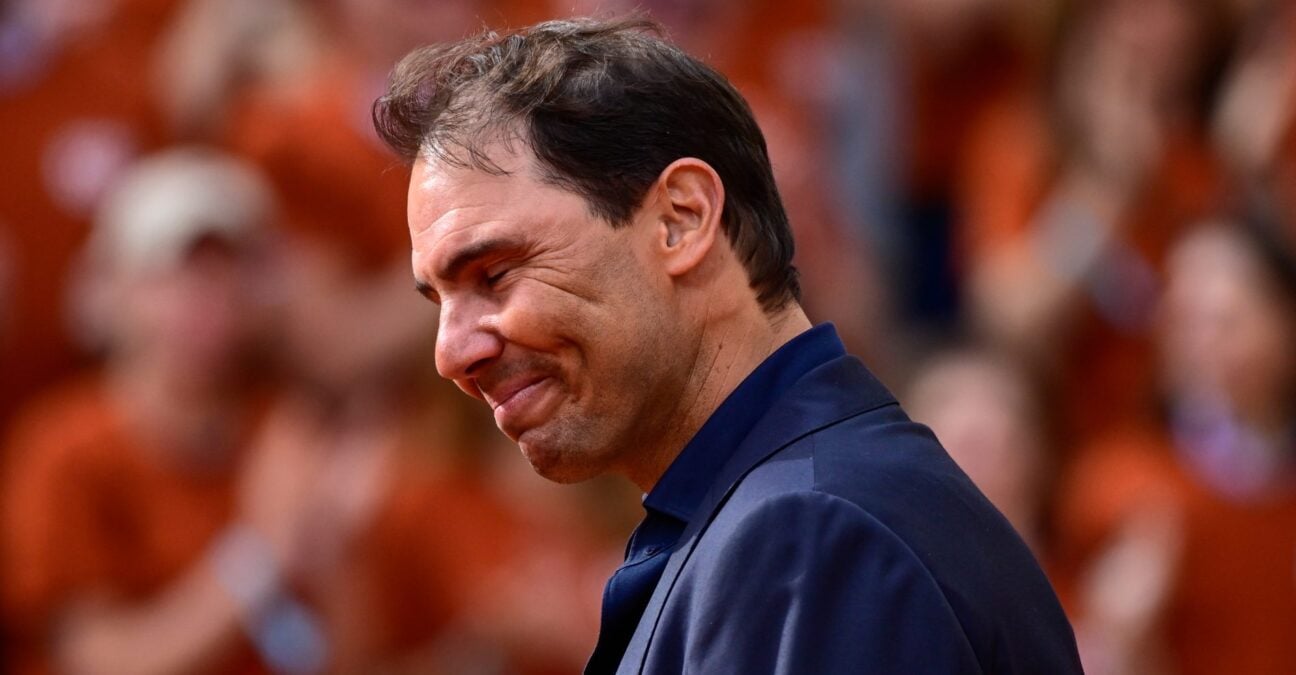 Rafael Nadal, Roland-Garros 2025 | © Dante Badano / PsnewZ
Rafael Nadal, Roland-Garros 2025 | © Dante Badano / PsnewZ
Rafael, what does it feel like when – in a foreign country – they give you the Olympic torch under the Eiffel Tower or put your footprint forever on their most important court?
Rafael Nadal : Well, first of all, one feels especially grateful. Grateful for all the affection, for all the respect they have shown me in this country and in this city, actually. I am Spanish. I have always considered myself as such and have been proud of it, but I have always respected and loved this country from the very first day I was here, right? And really feeling that affection and respect, and I try to be reciprocal, is something difficult to express in words because being recognized in the place that has been most important for oneself is something I would say is very very special, right? It is a great personal satisfaction. Today was a day that moved me, I think it was a perfect ceremony and exactly the way I had dreamed it.
What does that mean to you that your name is right there on the court at Chatrier and will always be on that court?
Rafael Nadal: It’s impossible to describe in words what represent for me to have this space in the most important court in my life, you know. That’s the truth. As simple as that. My gratitude to the people who made that happen is infinite. And 20 years ago I was thinking about the next practice, my next tournament, and I never thought about becoming one of the best players of all time or winning Grand Slams or all this stuff. I just worried about trying to improve every single day.
I felt that way during all my career, you know. Probably step by step, that’s why I was able to build this successful career. Because I always had doubts, and I never considered myself that good.
Even today I feel that of course numbers are amazing, but I never considered myself somebody special. Not trying to be humble. Every time when I went on court, I had the feeling that I could lose. And I never lost that feeling during all those years.
That probably sometimes helped me. Overall in my long career, without a doubt, that was very important.
2022 was the most, probably the toughest in all ways for all the things that happened before and during the tournament.
The fans and the media, they do remember the 14 titles. They could name the epic matches, the easy ones etc… Are you this kind of guys who remembers the matches in detail and if yes, would you please rate the most difficult and emotional editions.
Rafael Nadal : I tell you one funny thing. I was this kind of guy that I remembered every single point or almost, but I lost that privilege years ago. It’s true. I don’t remember most of the things. I used to remember a lot, every tournament, every game. Not anymore. It’s true, probably because I closed that chapter of my life. But if I have to choose an edition in terms of, let’s say… Let me choose a couple of editions, couple of years, because one it’s difficult.
2006 was so special for me after coming back from my very tough foot injury. That was very, very emotional. People think about 2008 because it’s true that it’s the year that I played better, that is not one of these years that I remember with high emotions, because I won the tournament without suffering that much. Based on my mentality, I remember more the tournaments that I suffered, than the tournaments that I needed to fight a lot. That year I played, I played so well. So I don’t have an amazing memory.
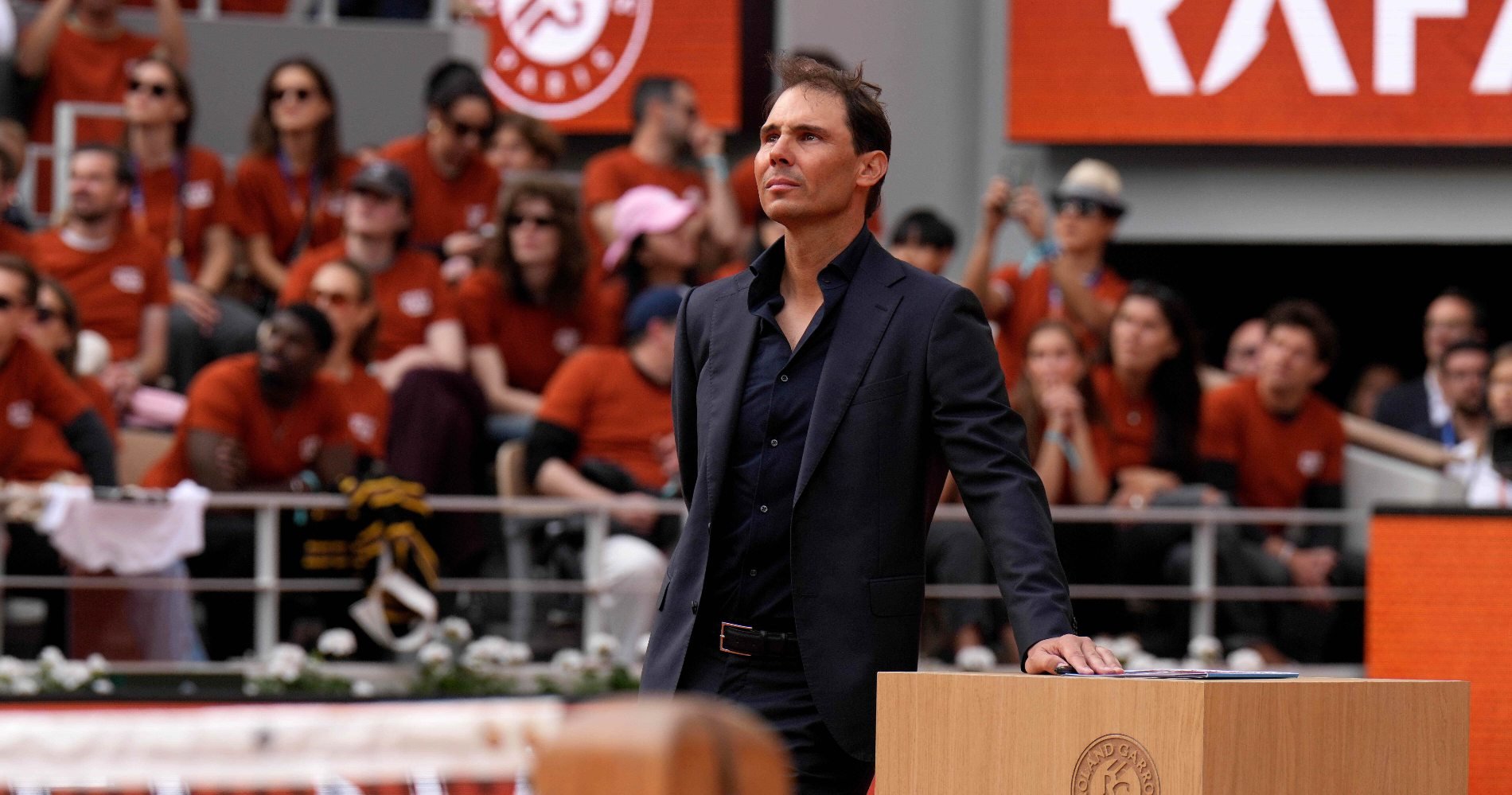
Of course 2010 was important, after losing 2009. And 2012 too, because I almost achieved the Grand Slam of the lost finals, you know. I lost in Wimbledon. I lost in the US Open. I lost in Australia after six hours. Then I was able to break that momentum here, so that was so important for me. Then of course 2020 was unexpected. 2022 was the most, probably the toughest in all ways for all the things that happened before and during the tournament.
So that’s the editions that stays forever in my mind more than the rest.
You don’t need to hate the opponent to try to beat him with all your forces.
Seeing the emotion from the crowd but also Roger, Novak, Andy with you here, is it one of these moments you never realized how much you meant to this sport and what an incredible page of history you have written?
Rafael Nadal : To receive tribute like I received today in Paris, in Roland-Garros, in France is something very special. When I was playing here the last, let’s say 12, 15 years, they make me feel like one more French player. That’s the true.
Have my three biggest rivals there in the court with me meant a lot, no? And at the same time it’s a great message for the world, I think, no, that best rivals, toughest rivalries probably in the history of our sport are able to be good colleagues, to respect each other. You don’t need to hate the opponent to try to beat him with all your forces.
And that’s the message that I think we showed people, we showed the new generations, and in some way that’s our legacy. The results are there, but at the same time the results are just results. Rest of the things stays.
At the end of the tribute, we saw you talking with Andy, Roger, and Novak, the four of you together. What did you say to them, if you agreed to tell it?
Rafael Nadal : Well, asking about life, families. You know, my good friend Andy that we were not in touch for a while, the day that Arsenal beat Real Madrid, when the match just finished, after one second, he text me a message, telling me… (He takes the smartphone out of his pocket) I gonna read, because it’s quite good (laughter). « Hey, Rafa, haven’t spoken to you in a while. Just checking in to make sure you are okay. » So honestly, take me like five seconds to realize what I was reading, because at the beginning, I said : « Okay, he’s such a nice guy. » Then I realized it was his excellent British sense of humour. I laughed alone, he made me smile at a moment when I didn’t feel like laughing. I didn’t text him back when PSG beat Arsenal.
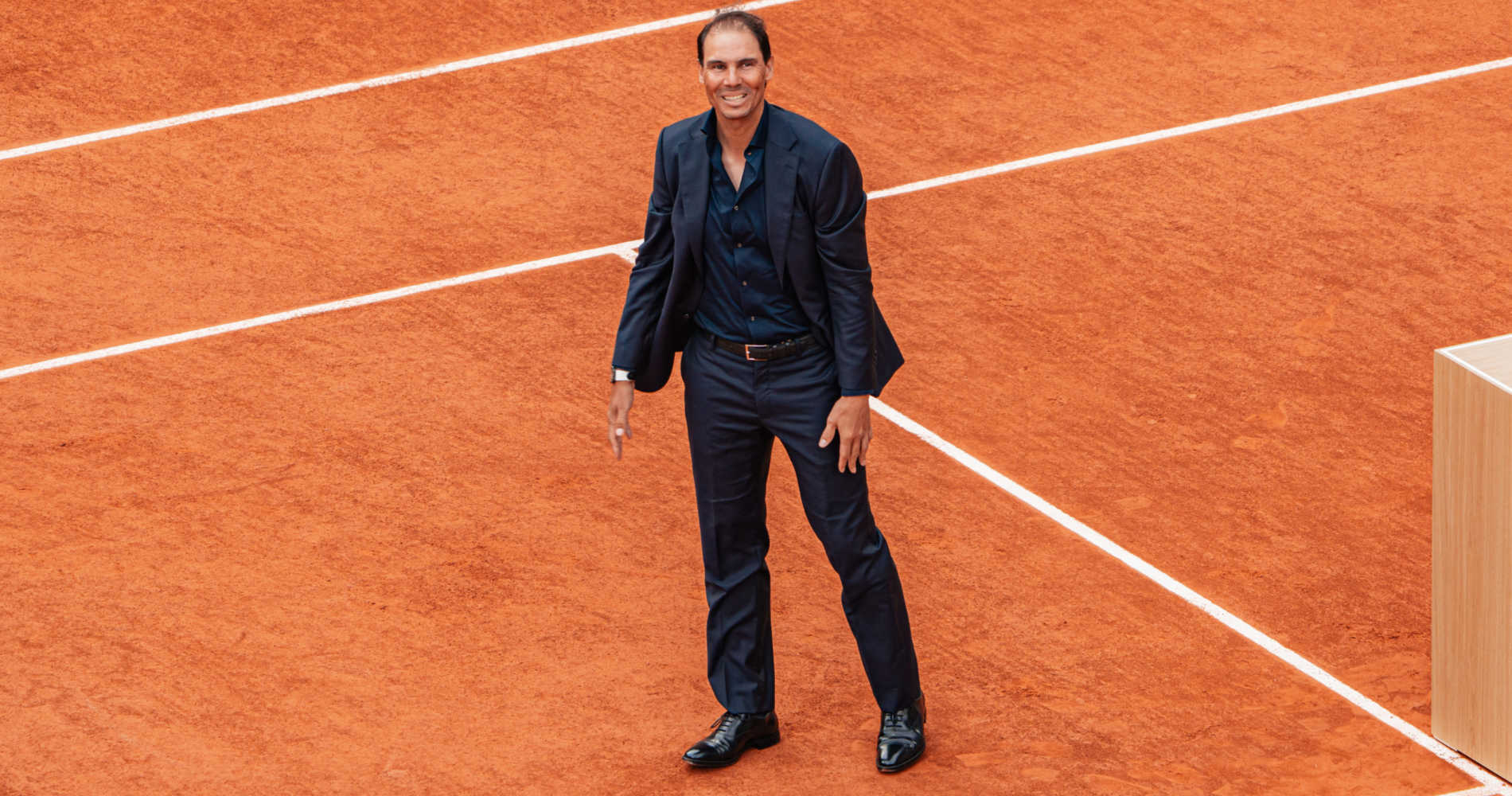
How is it like to be a retired tennis legend? What do you do? Your daily routine? How often do you play tennis? You seem to be in very good shape.
Rafael Nadal : Well it’s not because of my practices of tennis because I didn’t catch a racquet yet after my retirement. So it’s eight months without being on a tennis court. I will be back at some point, I will prepare myself to play an exhibition or something like this. Even if I had a lot of opportunities to made that, I need to give myself a time of disconnection, you know, because at the end, play exhibitions is not only go there and play the match. When you play an exhibition you want to show a good level of tennis for the fans and for everybody who organize.
My daily routine is no routine. I don’t have any routine today. I am just learning about the next business chapter of my life that I have. I have projects like my academy, the hotel company, the supplements company that I did with Cantabria Labs. I take care of my foundation too, and I take care of my family. I am discovering what really motivates me for this new life. So it’s not easy in terms of choosing your next goal. It’s so important to have goals in this life, because a life without objectives is more difficult from my point of view. So I am discovering what really excite me and motivates me to keep going.
My body don’t allow me to be on court. So that’s all. I am in peace.
I am having fun. I don’t miss much tennis, because I feel that I gived all what I had. I arrive at the day of today with the peace that I can’t be on court. You know, my body don’t allow me to be on court. So that’s all. I am in peace. I did all what I could to have the best career possible, and now I am enjoying this new phase of my life, that I am sure going to be less exciting than the tennis career, because the adrenalin that the sports gives to you is impossible to find in other things in life. But that’s don’t mean I gonna be less happy. I can be happier with less adrenaline and taking care of different things.
Rafa, as an extension of that, one of the things that really characterized your career was your love of competition and how competitive you were. Do you feel that you will want to find something to really be competitive about in the future in your life?
Rafael Nadal : I don’t need to compete in a high stages, you know. I tell you something funny. When I retired, for the next few months, I lost all my competitive spirit, you know. That’s the truth. I don’t know why. But I was playing golf or anything else, and I didn’t care if I lose, if I win, if I played well, if I played bad. It was a strange feeling for me, and not funny. I didn’t like to experience that, being honest, you know, because I understand the sport in other way.
But that’s already the past. I am competitive again. Just to let you know, I am enjoying my daily competitions when I play golf and when I do things, but I think in a much nicer way. In terms of business, I probably gonna have my motivation to grow the things, to develop things, and to learn about these things.
Because at the end I was a tennis player that because of that I was able to get some experience about different facets in life. But I need to learn a lot of things now. I am in this process and I am excited about learning and improving from the best.
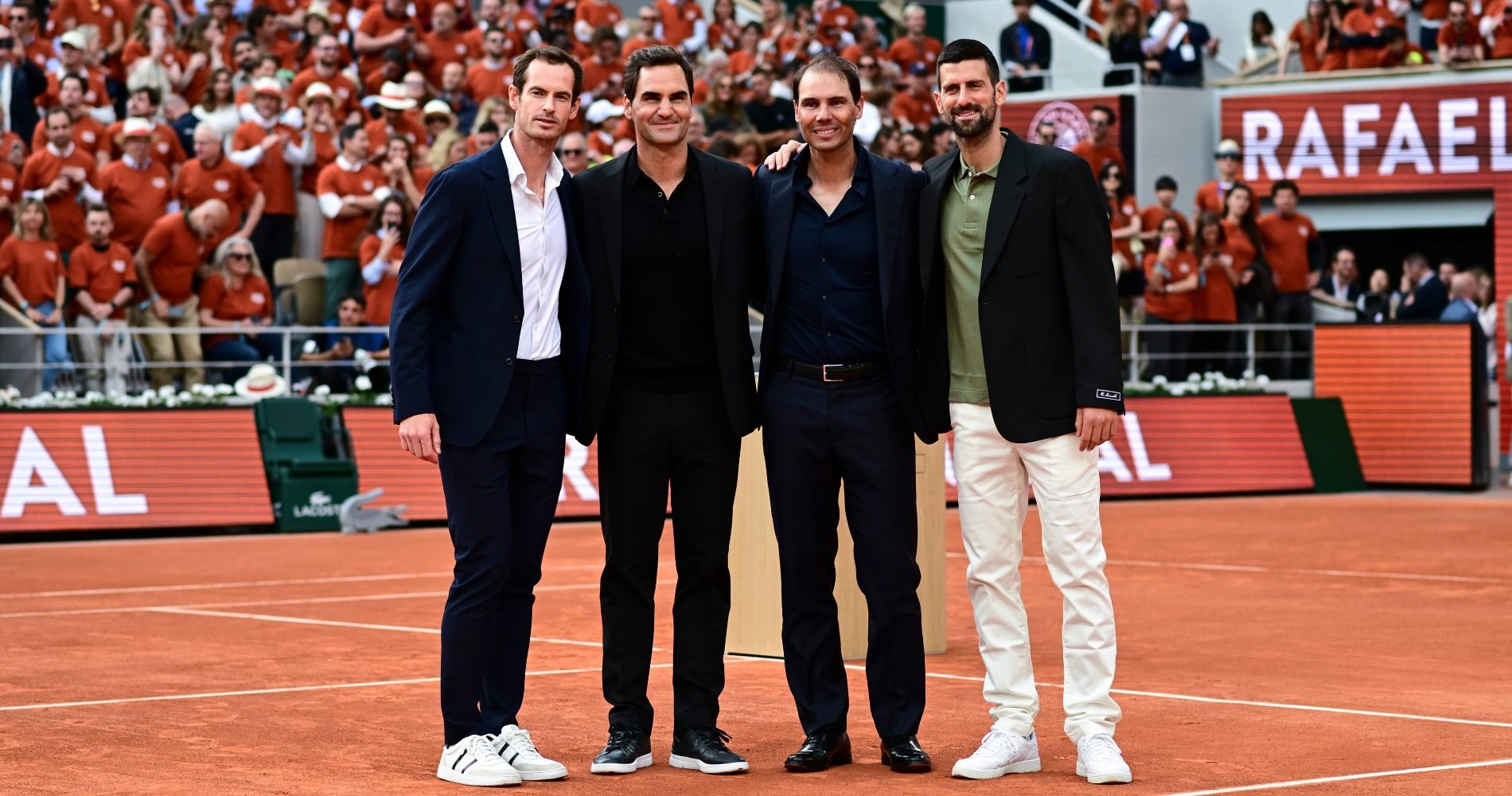
You mentioned coming here winning the first time 20 years ago. Wondered what your main memories are from that 2005 tournament.
Rafael Nadal : Well, it was the first tournament I could approach with the feeling that something special could happen. It was the first slam that I was, let’s say, one of the candidates. So I was nervous, 100%. But at the same time, when you are 18 years old, you have plenty of energy, and in some way, you are less worried about everything, you know. You have this fresh mentality about not thinking much about the negative things that can happen, just thinking about the motivation of play your best, try your best, and winning. That’s what I remember: a guy with plenty of energy, with an amazing passion and motivation for what I was doing.
Stepping back, if you could say one quality or two qualities, that one aspect that give you the most satisfaction, the most pride in your incredible career, can you express that?
Rafael Nadal : Well, in a few words, probably determination. And that brings to the next things, you know. Passion about every single day that you are going on a practice court. And that spirit of improvement. I always went on court on every single practice session with the goal to improve, you know. I never went on a tennis court just for practice, always with the goal to improve something.
That’s one of the keys of my longevity and my success, because I had to face a lot of injuries. So without that spirit of improvement to compensate all the things that I was losing on the road, it would be impossible. That’s what I am prouder about.
To the bigger audience, you can, in some way, lie. But you can’t lie the people who are next to you every single day.
You gained the heart of people with your results as a champion but also as the human being you are, seen as the most respectful player, always nice to everyone. Is this something you maybe are as proud of as your results?
Rafael Nadal : Of course. The results are results, and of course I will be remembered for what I did on court. That’s gonna stay there without a doubt.
To the bigger audience, you can, in some way, lie. But you can’t lie the people who are next to you every single day. The team, the people who work behind the scenes. They are able to see you every single day how you react after losing, after winning, how you behave during all these moments, the drivers, the ballkids…
At the end, I want to be remembered as a guy that people are happy when I come back to the places to see me again, you know. That’s important thing. I had that feeling almost in every place.
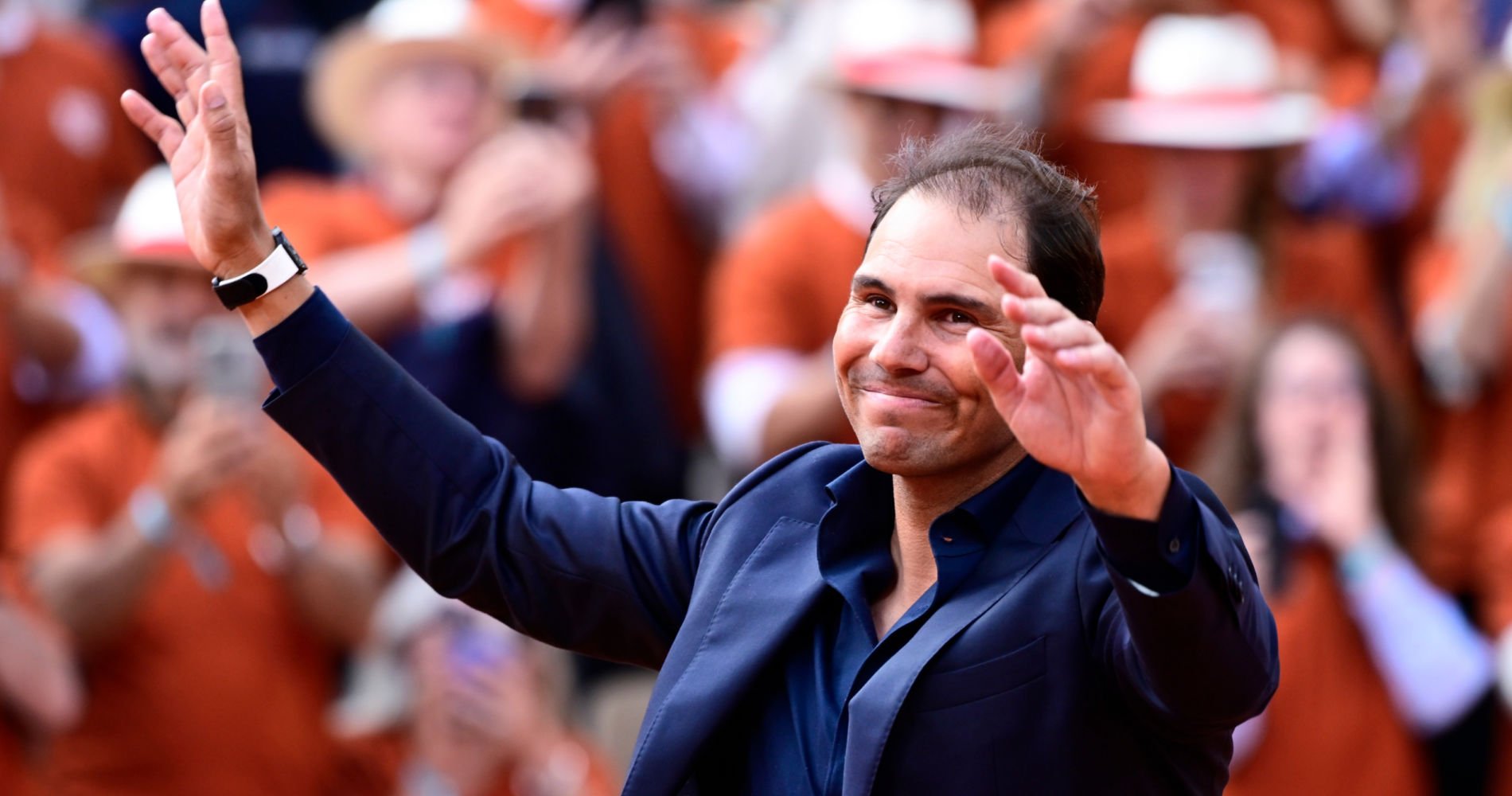
I know you spent all of your life pretty much trying to get the most out of yourself every day, improve on yourself, and you got to 14 Roland Garros. How would you feel if somebody else got the most out of themselves and they got to 14?
Rafael Nadal : I always said the same, and even if I know, that’s going to be difficult, honest, I really feel that if I did it, as I don’t consider myself somebody very, very special, another one gonna come and gonna achieve that too. A lot of things needs to happen in your favor, because you need a long career, you can’t have a lot of injuries, even if I had. I only retired here once in 2016, but was a year that I had my chance. You can have very, very bad days. So you need some luck, too. To win 14 Grand Slams in the same place, here in Roland-Garros, that can happen. But gonna takes a while, at least 14 more years.
Congratulations on the ceremony. You know more than most people the sacrifices to get to the very top of the sport and to stay there for that long and all the things you have to give up to be a professional sportsman. Would you like it if your son were to be a tennis player or a professional sportsman of any kind?
Rafael Nadal : If my son lives the tennis career the way that I lived, of course, yes, because as you mentioned about sacrifices, I never had that feeling. I never had the feeling that I did a lot of sacrifices. I never had the feeling that I lost a part of my life to become professional.
I never lost, in a way, things on when I was a youngster because of tennis. I just was not able to do all the things that my friends were doing every weekend, but I was able to do all the things, and I did it. And at the same time, when you are doing what you want to do, you are not doing sacrifices. You work hard, of course. You push as much as you can. But you do what you want to do.
So let’s say if my son feel that way, I will support him. I don’t think it’s gonna be the case, but I will support him on anything that he wants to do. But most important thing, from my point of view, is when you do something, you don’t have to feel that because you are doing that you are losing a lot of things, because if not, you start from a wrong perspective.
But in some way, that I think is a very positive learning, because at the end, it’s about self-control, it’s about learn how you deal with sometimes tough situations, sometimes with moments of frustration. But at the same time, you have to come here and be respectful for everyone.
Did you have to explain to your son what you’ve been doing, how you earned it, and do you have the intention to do it ?
Rafael Nadal : Well, to be honest, I have no illusion that they understand it or even know it, although obviously they will know, but I won’t be the one to explain it to them. I’m not that kind of father or person, honestly. I’m not someone who usually talks much about myself, about what I have achieved or what I haven’t achieved. I always came back home and tried to act normally, and much less to make my son believe that his father was some kind of phenomenon, right? I always tell you that I’m a potato — that’s the reality — in every attempt, don’t see me at all as someone who has been somebody. Because really, I don’t consider myself as such. I have been an athlete, I would say an important one, for things that have been achieved like the 14 Roland-Garros here, obviously there’s no need to be humble about that, numbers are numbers, but beyond that, I have no interest in even being seen as such.
I am not the type of person who says “No, I wouldn’t change anything”, I’VE MADe mistakes
A moment ago you said it becomes the next match, the next training session. Many of us experience that in our professions too. Now that you’ve had some time away from the court, is there anything you regret not living more fully—like that moment, that place, or knowing that person better, or something?
Rafael Nadal : Of course I have done things wrong. Of course I have made mistakes. Of course I would change things I have done in my life, without a doubt. I am not the type of person who says “No, I wouldn’t change anything,” I never was arrogant like that and I have usually been mistaken. But since I cannot change it, I try to learn from my mistakes, and the things I did, honestly I did them thinking it was the right way to do them. And obviously, for example, looking back, last year in Rome, a thousand people waited for me on the bridge after I lost my match, wanting to give me a farewell I was not prepared for. So, if you ask me if, I would have changed that, yes, I would have stayed if I had known at that moment, spending 15 minutes thanking them and talking to them.
But for me it was an uncomfortable situation because I didn’t know if I wanted to retire at that moment, you know? So, these are moments when you make mistakes. Yes, I made a mistake at that moment. I should have stayed longer. But I didn’t do it out of malice, it was what I felt at that time and I didn’t want this feeling of retirement to invade my thoughts because it would have taken away the real chance to keep fighting to recover. This is one example, and there are many others where I have made mistakes, but I have tried to learn from them.
I wanted to ask you about the image I think all tennis fans were waiting for, when your three teammates appeared and the Big Four gathered on a court. Wanted to know if what you have done, and how you have done it, especially the “how,” is a fundamental part of this legacy and this worldwide recognition that you all have, the fact that you acted without controversy despite strong rivalries.
Rafael Nadal : Well, I think it has been a way of understanding sport and life. In the end, I think this is a message, as I said before on the court, a positive message. That is, that we wanted to win with all our strength, but to reach that level of demand, you don’t have to hate the rival. That’s the point. I think there’s no need to hate the rival to want to beat them with all your strength. You can admire and respect the rival to the fullest and still want to beat them with all your strength and give your best effort to achieve it. And this is the legacy beyond the results. And well, I trust and hope this is something that has served for the new generations, and in a world today, I would say, more tense than most of us would like, and more radicalized in many ways. So, I think positive and calm and sensible messages can be a good message for many people, right? We have to be proud of how we have reached our careers, from start to finish, with our best moments, our worst moments, our moments of more rivalry, less rivalry, but in the end, we have always understood that this was a game and everything else passed by, and many times it’s not easy. I think we achieved it.
When I watch tennis, generally speaking I’m enjoying the game and I don’t care about who wins or lose, apart from the people I know.
You have talked a lot about victories here on this court, but what did the defeats mean? There were few, right? Against Soderling, against Djokovic, and the last one against Federer, what lessons did they leave you?
Rafael Nadal : Lessons? Not many. I learned much more from victories than from defeats. I have always been self-critical enough for my victories to help me read all the things I needed to improve. I didn’t need to lose to understand what I had to improve. What you get from defeats is a hit, a setback, and it puts you in your place, but I never needed to lose to know I had to keep working and keep improving. Defeats put into perspective all the things to follow. Losing also makes you value victory much more and in a more special way.
You said you don’t miss tennis, but there must be something you miss. Can you tell us that? And on the contrary, what things can you do now? Or what luxury can you allow yourself—like chocolate or something you never would have considered before?
Rafael Nadal : Unfortunately, this, the chocolate thing, I did this practically my whole life. I wasn’t able to restrain myself in that sense. I worked hard, there are things I improved a lot over the years, but I never managed to bring them to the limit that the sport required. For the first question, it’s not that I don’t miss it. I never got tired of tennis, I ended my sports career loving tennis, but I reached a point where my body couldn’t take it anymore. That’s the reality, it’s not a mental thing. So, when that day came, I closed a chapter of my life. Book closed, and as I’ve said many times, since I’m not a person with a big ego who needs moments like today’s — which was very emotional and unforgettable — I live well day by day in more anonymity and a more normal, ordinary life.
Although tennis was a very important part of my life all these years, I always had a life beyond tennis that fulfilled me. So, I had the intuition that when that day came, if I was convinced and satisfied with all the effort I had made during my career, the transition would be smooth. And it has been. It’s real. I’m fine, I’m happy, I’m enjoying other things. I still watch tennis sometimes. I don’t watch tennis if it hurts me. It can hurt me to see Rome, Monte-Carlo, Barcelona, even here Roland-Garros. Because it’s the end of a road. But this book has been closed with great satisfaction. Now moving on to a new stage. That’s what happens to all of us. And truly, when you finish this stage, you forget rivalries, you forget who wins or who loses, like there was maybe someone you didn’t want to win. When I watch tennis, generally speaking I’m enjoying the game and I don’t care about who wins or lose, apart from the people I know or my fellow Spaniard. But if Novak wins Roland-Garros, it will not disturb me in any sense. Four years ago, I would not have thought like that. I’m genuinely happy to live it this way today.
